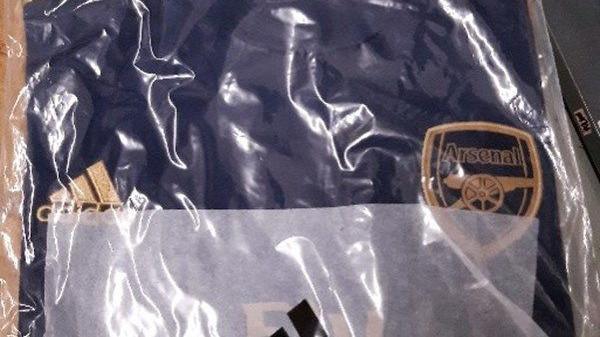Fake Premier League kit seller told to repay £118k

Sajid Hussain was convicted of selling fake clothing which included Liverpool, Manchester United and Arsenal football kits
- Published
A man who sold counterfeit football shirts through social media has been ordered to pay back more than £118,000 or be sent to prison.
Sajid Hussain was convicted in 2022 of selling fake clothing which included Liverpool, Manchester United and Arsenal kits.
A confiscation order was made against him at Bradford Crown Court on 22 May requiring him to repay some of the profit he had made.
West Yorkshire Trading Standards said it was investigating "hidden assets" held by Hussain, from Bradford, which he will also have to pay back.
Hussain's crimes were discovered when a package containing 39 counterfeit items was intercepted at Leeds Bradford Airport in 2019.
Suppliers of official Premier League strips, including Nike and Adidas, assisted with the investigation and were able to confirm that the goods were not genuine.
The recent confiscation hearing at the same court found that the benefit from the offending was almost £333,000.
Trading Standards manager Linda Davis said: "The Proceeds of Crime Act allows us to recoup a criminal’s benefit via confiscation orders, and we will pursue and recover assets of those involved in this type of offending, ensuring they cannot use their ill-gotten gains to further their illegal enterprises."
The original investigation revealed that Hussain’s PayPal account had total sales of £161,000 between January 2017 and August 2019.
A linked eBay account was also located with trademarked items listed as having been sold.
The fake clothes were seized during a raid on Hussain's home in 2020. Evidence of the sale of the items through his personal bank accounts was uncovered.
Hussain, then of Mill Race Lane in the Girlington area, pleaded guilty at the same court in May 2022 to 26 counts of unauthorised possession and distribution of trademarks and was ordered to complete 150 hours of unpaid work.
At the time of the sentencing hearing, he was working in a "position of responsibility" at supermarket chain Morrisons, the court was told.